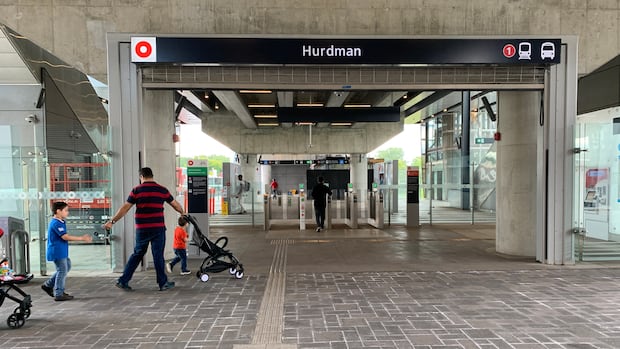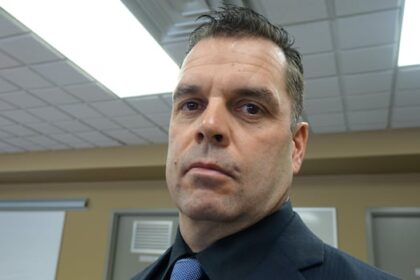OttawaOC Transpo is looking to use artificial intelligence (AI) to alert special constables to crime and emergencies occurring within the agency’s vehicles and facilities, Ottawa city councillors have heard.Artificial Intelligence could scan transit agency’s 10,000 cameras to detect ‘anomolies’ in real timeCBC News · Posted: Nov 25, 2025 4:00 AM EST | Last Updated: 4 hours agoListen to this articleEstimated 3 minutesThe audio version of this article is generated by text-to-speech, a technology based on artificial intelligence.OC Transpo is exploring the use of artificial intelligence to monitor the 10,000 security cameras within its system in real time. (Guy Quenneville/CBC)OC Transpo is looking to use artificial intelligence (AI) to alert special constables to crime and emergencies occurring within the agency’s vehicles and facilities, Ottawa city councillors have heard.OC Transpo’s chief special constable Peter Scislowski told the transit committee on Monday that the agency was “exploring the potential” of using artificial intelligence to monitor OC Transpo security cameras.”Staff are reviewing the potential of real-time anomaly detection AI on crime reduction and rider safety in transit environments which would flag unusual behavior in real time such as assaults, vandalism, loitering and emergencies, which would notify our special constables,” Scislowski said.Ottawa is looking to follow the lead of Montreal, which has developed a pilot project to prevent suicide in the city’s Metro by using AI to monitor security cameras to detect warning signs of a person in distress, Scislowski said.Pilot project uses AI to prevent suicide in Montreal Metro He and OC Transpo’s chief safety officer Sabrina Pasian recently visited Montreal to learn from its experience, Scislowski said.”One thing that stood out to us was how their data and technology was at the forefront of their operations,” he said. OC Transpo has been looking to AI as it prepares a new public safety strategy, Pasian told CBC. “One of the pillars of the strategy is technology,” she said. “So just like any transit agency, we’re trying to stay on the forefront.”10,000 camerasOC Transpo has over 10,000 security cameras in its system and is exploring using AI to “support detecting anomalies,” Pasian said. Pasian said she expects to update the transit committee on progress in researching AI’s potential in the coming year. “This is just super preliminary,” she said of the current effort.Laura Shantz of advocacy group Ottawa Transit Riders worries the untested technology could contribute to racial profiling and over-policing. “Will people who are experiencing homelessness and stepping inside of a station like Rideau station just to warm up for a few minutes, will they be targeted?” she asked. Shantz believes increasing ridership would be the most effective way of increasing safety for OC Transpo.”Having more people at stops, having more eyes around you is one of the simplest, easiest ways to make people feel more safe,” she told CBC. Pasian concedes that more work is needed to allay concerns around the potential risks of AI. “I’ve never seen Black Mirror, but I would definitely say that we need to do our due diligence,” she said, referring to the near-future dystopian television series.
Thursday, 5 Mar 2026
Canada – The Illusion
Search
Have an existing account?
Sign In
© 2022 Foxiz News Network. Ruby Design Company. All Rights Reserved.
You May also Like
- More News:
- history
- Standing Bear Network
- John Gonzalez
- ᐊᔭᐦᑊ ayahp — It happened
- Creation
- Beneath the Water
- Olympic gold medal
- Jim Thorpe
- type O blood
- the bringer of life
- Raven
- Wás’agi
- NoiseCat
- 'Sugarcane'
- The rivers still sing
- ᑲᓂᐸᐏᐟ ᒪᐢᑿ
- ᐅᑳᐤ okâw — We remember
- ᐊᓂᓈᐯᐃᐧᐣ aninâpêwin — Truth
- This is what it means to be human.
- Nokoma











